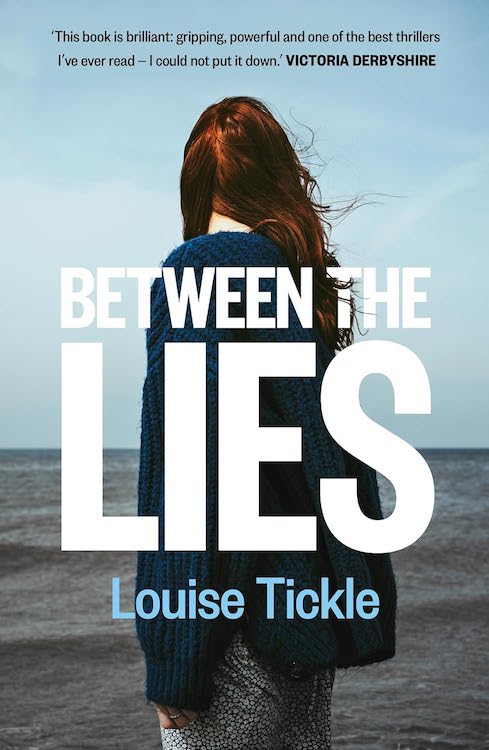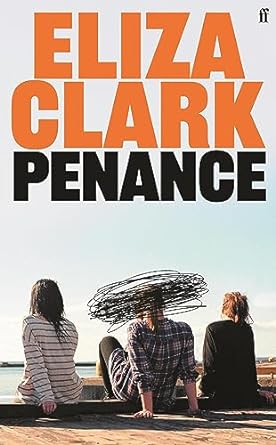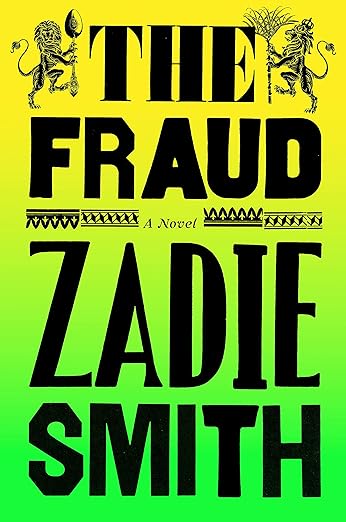Book review: Legal fictions
We review three recent novels dealing with legal themes… Continue reading about Book review: Legal fictions

- Louise Tickle: Between the Lies (Cinto, £17.99)
- Eliza Clark: Penance (Faber, £14.99)
- Zadie Smith: The Fraud (Hamish Hamilton, £20)
Law courts provide plenty of human interest stories, though few have happy endings, and some are utterly tragic. These three recent novels all deal with court cases, real or imagined, contemporary or historical, and the human stories behind them. Each in its own way achieves an understanding that purely factual reporting cannot quite reach, while offering a compelling narrative that will continue to haunt the reader long after they have turned the last page.

Louise Tickle is an award-winning journalist and broadcaster who specialises in covering family justice, or at any rate the family courts. Many of the cases she covers involve relationship breakdown, domestic abuse, and the uncertain fate of children at the hands of the state. Often this has involved her in taking legal proceedings to defend her right to report things. In one case, she called out a judge for demonstrating bias; in another, she exposed a former MP who was found to have raped his own wife. So there are reported cases bearing her name, simply because of the other cases, involving other people, that she was trying to report.
Now she has written a novel. Between the Lies explores the dilemma faced by many caught up in litigation, whether civil or criminal, including legal professionals and judges: when faced with diametrically opposing evidence from two different witnesses or parties, who do you believe?
The story weaves together two main strands. Cherry Magraw is a freelance journalist, whose youth was blighted by family violence. When she was just nine years old, her mother was murdered by her father. In traumatic events which continue to haunt her, she managed to escape but her younger brother was not so lucky. Many years later, her father writes to her from prison, begging her to hear his side of the story. She is curious to know more, for her own peace of mind, yet how can she possibly trust him?
Meanwhile, she stumbles upon a case involving Kathie, a woman seeking to protect her children from a violent ex-partner, trying to navigate the family justice system without a lawyer, facing a judge who seems to be biased in favour of the apparently persuasive ex-husband, Ed. Cherry attends the private family court hearing, as she is entitled to, despite the judge’s hostility, and tries to understand both sides of the story. But as she gets drawn further into the dispute, she finds she must eventually take sides.
In more ways than one, she now has skin in the game; and as the wounds of the past reopen, and the threats of the present take hold, the narrative races towards a gripping and suspenseful conclusion. The court scenes in particular have an agonising authenticity about them, no doubt derived from the author’s experience in reporting (or not being allowed to) such scenes in real life.

In Eliza Clark’s Penance three teenage girls in a forgotten seaside town murder a fourth, one of their own classmates, in a savage night of violence, abducting and torturing her before locking her into a beach hut, doused in petrol and set on fire. The story is framed as a “true crime” investigation by a journalist, Alec. Z. Carelli, for whom the genre offers a new career after a phone-hacking conviction has deprived him of his newspaper job. While purporting to understand and explain the girls’ apparently motiveless act of random violence, his narrative also demonstrates the questionable prurience and sensationalism of the true crime genre, of which it is uncomfortably self-conscious.
The perpetrators (referred to initially as Girl A, Girl B, etc) are gradually exposed to scrutiny through interviews, diaries, social media (the narrator’s phone-hacking skills may have come in useful, one suspects) and their interactions with the criminal justice system. There are interviews with others, including the victim’s mother, plus a potted history of the local town. There’s even an interview with Carelli himself, being challenged as to his credibility as a reporter. All this feeds into a “reconstruction” of the events of the night in question which, while it may not be entirely reliable, supposedly preserves the “emotional truth” of what happened.
What emerges is a toxic combination of adolescent jealousies and morbid fascination with and desire to emulate other teenage killers and their infamy, fed in turn by the lurid true crime industry both represented and interrogated by this narrative. Horrible as this story is, it is also horribly compelling. There are some uncomfortable parallels with the recent murder of Brianna Ghey, whose juvenile killers (referred to at trial as Girl X and Boy Y) were also reportedly obsessed by tales told on the dark web of darker deeds elsewhere, and egged each other on to turn warped fantasy into a grisly reality. That makes it seem both prescient and topical.

Zadie Smith’s The Fraud offers a new perspective on a real historical case, the Tichborne Inheritance Claim, which gripped Victorian society in the 1860s and 1870s. The case concerned a man claiming to be Roger Tichborne, the shipwrecked heir to an English baronetcy, news of whose whereabouts was sought by his distraught mother, through advertisements published in Australia. Although Lady Tichborne identified the man who came forward as her son, his claim was rejected by the High Court*; and on being tried and convicted for perjury he was identified as Arthur Orton, a butcher from Wapping, who had gone to Australia and set up business under the name of Thomas Castro.
Around this cause célèbre, Smith weaves two other strands. The first concerns a now forgotten novelist, William Harrison Ainsworth, a contemporary (and initially more successful) rival of Dickens, Thackeray et al, and his household, two members of which are obsessed by the Tichborne trials. The other concerns the history of the slave trade and its abolition, and the aristocratic families including the Tichbornes who benefited from the trade and its profits.
All three strands are linked through the person and life story of the former slave, Andrew Bogle, who worked for the Tichbornes, and who steadfastly gives evidence in support of the man claiming to be the heir of their blighted fortune. It is Ainsworth’s cousin and housekeeper, Eliza Touchet, who accosts him outside the court and offers him tea and a chop, in return for hearing his life story. The implication is that she has found and perhaps written about something a lot more interesting, at least to a contemporary readership, than the serialised historical narratives to which her cousin insists upon putting his penny-a-liner pen, having researched them all through other men’s books.
The Fraud is long and contains many passages derived from the court transcripts of the day, which is legally interesting and authentic but sometimes a bit of a longueur. The narrative constantly jumps forward and back in time, which can be confusing. However, by the end of the book I was so completely absorbed in the lives of the characters and their interwoven stories that I felt quite sorry it wasn’t even longer. In her own way, perhaps, Zadie Smith has written the perfect 19th century novel for 21st century readers. (She is also an excellent reader, for audiobook, of her own work.)
Reviewer’s note. In the interests of transparency, I should declare that I know Louise Tickle personally through our membership of the Transparency Project, which promotes open justice, particularly in the family courts. I do not know either Zadie Smith or Eliza Clark personally.
*Some of the litigation in the Tichborne affair has made it into The Law Reports, though not the main trials. See, for example:
- Tichborne v Mostyn (1872) LR 8 CP 29, CP
- R v Castro (otherwise Orton, otherwise Tichborne) (Onslow’s & Whalley’s case) (1873) LR 9 QB 219, QBD
- R v Castro (1874) LR 9 QB 350, QBD; (1880) 5 QBD 490, CA; (1881) 6 App Cas 229, HL